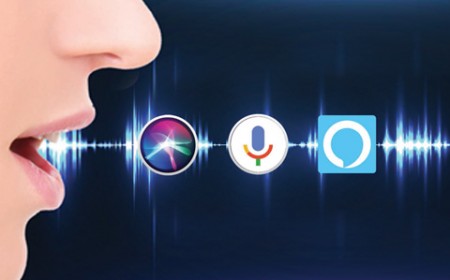
Voice assistants, such as Amazon Alexa, Google Assistant, and Apple Siri, have become ubiquitous in today’s digital landscape, revolutionizing the way we interact with technology and simplifying tasks in our daily lives. These voice-enabled devices are not only controlling smart homes but also providing personalized experiences tailored to individual preferences. In this article, we’ll explore the growing presence of voice assistants and their impact on various industries, uncovering advancements in natural language processing and the vast potential of voice technology.
Voice assistants have rapidly gained popularity due to their convenience and ease of use. Whether it’s setting reminders, playing music, checking the weather, or answering trivia questions, voice-enabled devices have made it effortless to access information and perform tasks using natural language commands. Moreover, the integration of voice assistants into smart home devices has transformed the way we interact with our living spaces, allowing us to control lights, thermostats, security cameras, and other connected devices with simple voice commands.
One of the key advancements driving the adoption of voice assistants is natural language processing (NLP), a branch of artificial intelligence (AI) that enables computers to understand and respond to human language in a natural way. NLP algorithms have become increasingly sophisticated, allowing voice assistants to accurately interpret complex commands, understand context, and provide relevant responses. As a result, voice-enabled devices can offer more personalized experiences by learning users’ preferences, habits, and conversational patterns over time.
In addition to simplifying everyday tasks, voice assistants are also playing a significant role in various industries, from healthcare and education to retail and hospitality. In healthcare, voice-enabled devices are being used to assist patients with medication reminders, appointment scheduling, and accessing medical information. In education, voice assistants are helping students learn new concepts, practice language skills, and access educational resources through interactive voice-based interfaces. In retail, voice technology is enhancing the shopping experience by enabling voice-activated search, personalized recommendations, and voice-enabled checkout processes.
Furthermore, voice technology is making significant strides in the automotive industry, where voice assistants are integrated into vehicles to provide hands-free control over navigation, entertainment, and communication systems. With voice-enabled virtual assistants like Amazon Alexa for Auto and Google Assistant for Android Auto, drivers can perform tasks such as finding nearby gas stations, playing music, and sending text messages without taking their hands off the wheel or eyes off the road, enhancing safety and convenience on the go.
Looking ahead, the potential of voice technology is boundless, with opportunities for innovation across various sectors. As NLP algorithms continue to improve and voice-enabled devices become more pervasive, we can expect to see even greater integration of voice assistants into our daily lives. From personalized healthcare experiences and immersive educational tools to seamless shopping experiences and safer driving experiences, voice technology is reshaping the way we interact with technology and transforming industries in profound ways. As voice assistants become more intelligent and ubiquitous, they will continue to enhance efficiency, productivity, and convenience in our increasingly connected world.

